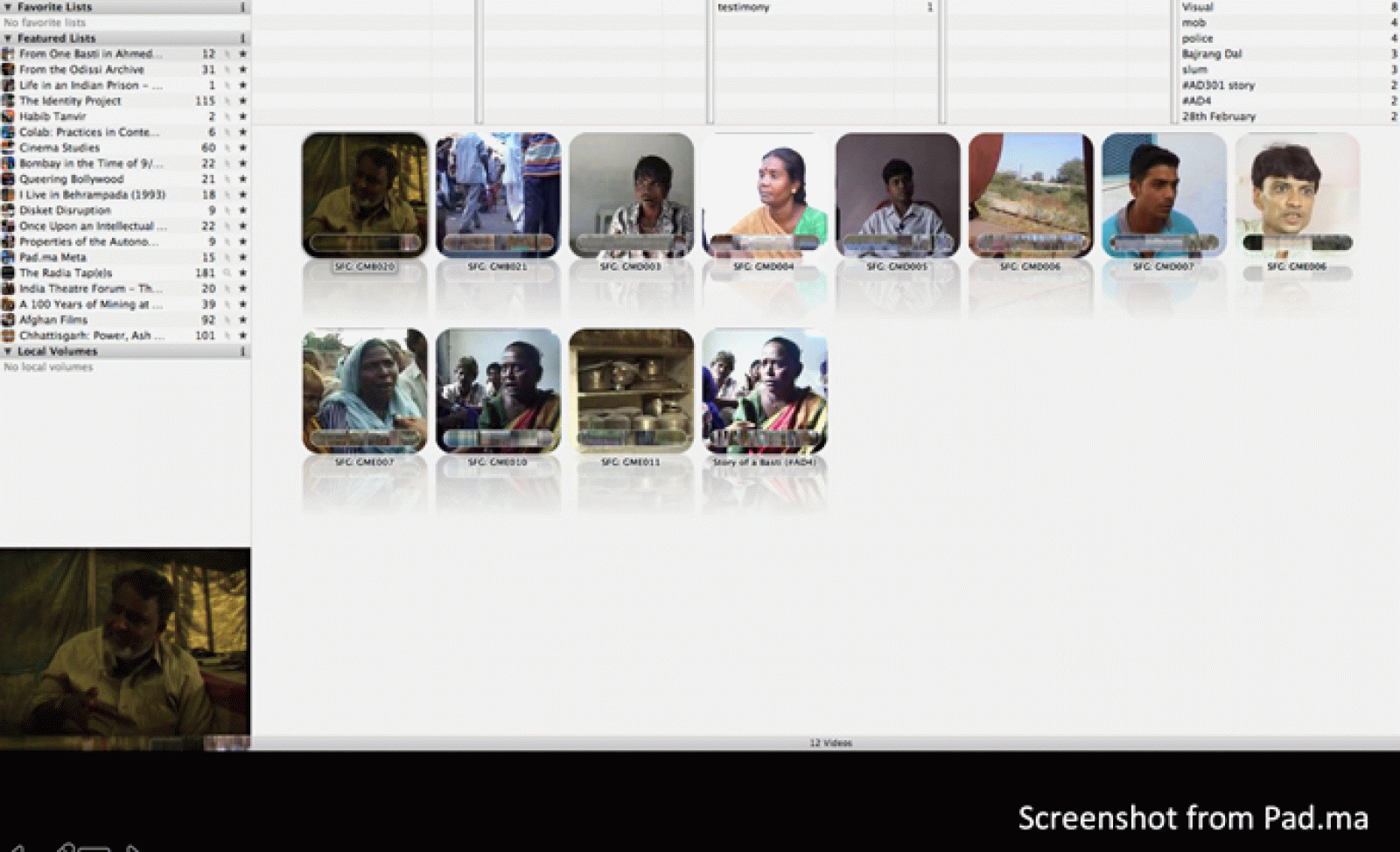Seminar
Paolo S. H. Favero: The Uncanny Destiny of 'Raw' Footage. Reflections from India on Documentary Film, Participation and Advocacy

The digitised habitats of the world are today witnessing to the consolidation of a new ecology of images. Relational, material, haptic and immersive by nature, "new images" seem to promote also new practices of image-making characterised by non-linearity, interactivity and new forms of participation. Yet, what does this mean for the way in which the practice of ethnographic documentary film is evolving and especially for its capacity to promote instances of social intervention and advocacy? The present talk dives into this terrain from the vantage point of a particular documentary project born in India in 2002 in the aftermath of the Gujarat carnage. An audio-visual database created by a small group of artists/activists animated by the desire to generate material that could be used by filmmakers, lawyers, human rights organization etc., The Shared Footage Group's project is probably a precursor of what we today call non-linear, interactive documentary. Constituted by images filmed in different formats and with different perspectives, and funded entirely by donations (as to remove it from any possible forms of control) this archive managed, however, not to have the desired impact. The images got dispersed, migrating between a number of different actors and archives. This failure forces us hence to enquire into the destiny of raw footage. Can raw footage ever exist? Can documentary film live in the absence of authorship? What is the future of documentary film in a world increasingly characterised by the merging of the digital and the visual?
Paolo S. H. Favero is Associate Professor in Film Studies and Visual Culture at the University of Antwerp. A visual anthropologist, he has devoted his career to the study of visual culture in India (and also Italy). His core interest is the role of images (new and old) in human life.
With a PhD in Social Anthropology from Stockholm University (resulting in a book entitled India Dreams, 2005) Paolo has taught at the University Institute Lisbon (Portugal), University College London (UK), University of Foggia (Italy) and Stockholm University (Sweden). He is also visiting professor at Ambedkar University (Delhi, India) and the Tata Institute of Social Sciences (Mumbai, India). Paolo is involved in ethnographical research on emerging image-making practices and politics in contemporary India and focuses also on the ontology of images in digital habitats and on the meaning of images in human life at large.
He is the author of The Present Image: Visible Stories in a Digital Habitat (Palgrave Macmillan) and of Dentro ed oltre l'Immagine: saggi sulla cultura politica e visive nell'Italia contemporanea (Meltemi). He is presently working on a new book entitled Image-Making-India (Bloomsbury).
16. Oktober 2018, 11:00 Uhr
Kunsthistorisches Institut in Florenz - Max-Planck-Institut
Palazzo Grifoni Budini Gattai
Via dei Servi 51
50122 Firenze
Hinweis
Diese Veranstaltung wird durch Fotografien und/oder Videoaufnahmen dokumentiert. Falls es nicht Ihre Zustimmung findet, dass das Kunsthistorische Institut in Florenz Aufnahmen, auf denen Sie erkennbar abgebildet sein könnten, für die Veranstaltungsdokumentation und Öffentlichkeitsarbeit (z.B. Social Media) verwendet, bitten wir um eine entsprechende Rückmeldung.


